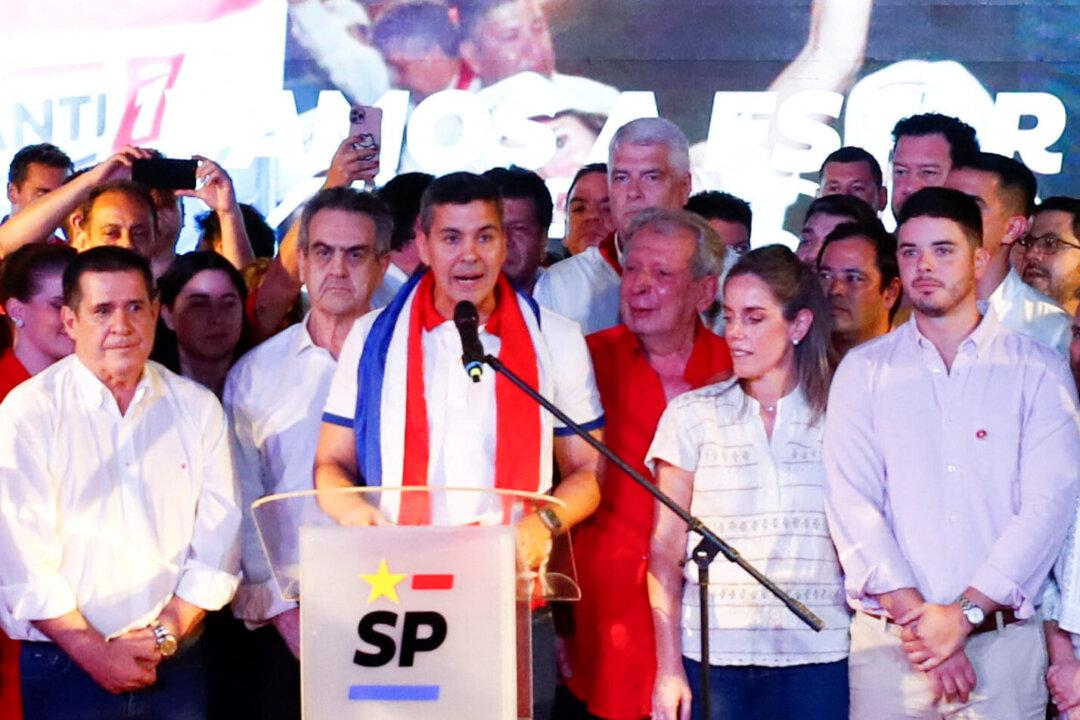ASUNCION, Paraguay—Paraguayan conservative economist Santiago Peña, 44, won the country’s presidential election on April 30, tightening the ruling Colorado Party’s political grip in the country and defusing fears about the end of diplomatic ties with Taiwan.
Peña, who has pledged to maintain Paraguay’s long-standing Taiwan relations, had 42.7 percent of the vote with 99.9 percent of ballots counted, a more than 15-point lead over center-left rival Efraín Alegre, who has argued for switching the country’s allegiance to China.





